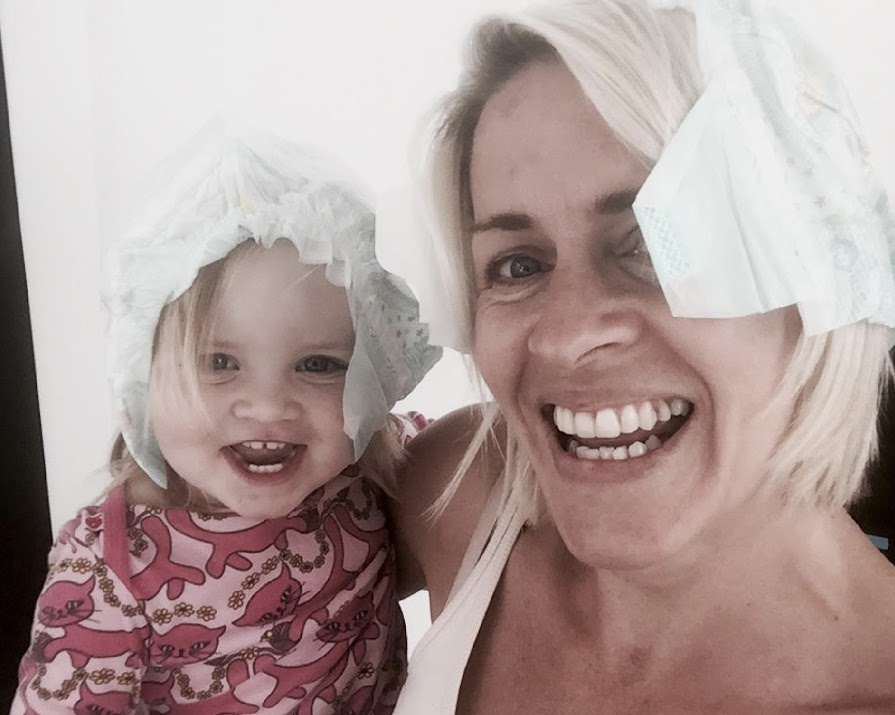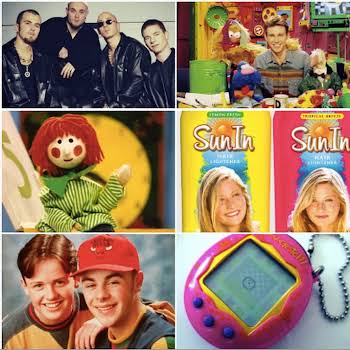
‘We were told that our baby, who from the outside looked perfect, had a rare condition called PKU’
By Amanda Cassidy
03rd Dec 2022
03rd Dec 2022
Have you ever heard of Phenylketonuria (PKU) - A rare metabolic condition diagnosed at birth affecting a person’s ability to metabolise protein, which if left untreated, can lead to devastating neurological complications? These mothers speak out about the surprise diagnosis they received for their babies, the single treatment that is available, and the future for their daughters.
Bernadette’s story
“It was the day of the Irish Presidential election, it was also my first day out of the pyjamas 10 days after having our baby girl. She was sleeping as I placed her in her soft velvet jumpsuit and tucked her in securely to her car seat. The telephone rang.
The voice on the line will stay with me for the rest of my life. “This is Leona calling from the Maternity ward. I want you to know that your child is healthy but…we think she may have a condition called PKU so you must make your way to Temple Street Children’s Hospital. There will be someone waiting for you at hematology, from there you will be taken to St Michael’s ward.”
As we made the three hour journey, I tried to make sense of it all. I called a friend who was a nurse on route. The first question of course was obvious – What is PKU?
Advertisement
I was surprised that a diet of any kind could be so transformative and I remember not feeling comfortable relying upon it.
PKU stands for Phenylketonuria and is a rare condition diagnosed at birth through newborn screening what we know as the heel prick test, it affects a person’s ability to break down protein, if protein builds up in the bloodstream it can cross the blood brain barrier and can cause severe physical and intellectual disability.
It is rare, however, three in every hundred Irish people are carriers for PKU, two carriers have a 1 in 4 chance of having a child with the condition. Tested for in Ireland since 1966, yet no one really knows anything about it.
Currently there is no cure. The treatment, my friend explained on that difficult journey, is a low protein diet for life that will prevent severe physical and intellectual disability. I was surprised that a diet of any kind could be so transformative and I remember not feeling comfortable relying upon it.
I was starting to grieve for the child I never actually had… that child without PKU. I felt helpless, dependent and very lost. Similar to the diagnosis of other rare conditions, there was no psychological support for OUR family. It is a traumatic life event. It is emphasized from very early on how lucky you are to have a diagnosis but the family’s well-being often gets overlooked.
On line information was confusing and at times contradictory and it took years of conversations for me to fully understand why. Those living with it provided the greatest clarity.
Advertisement
The ‘low protein diet for life’ was a revelation for our community pioneered by medical doctors but first trialed by an Irish mother in Birmingham exactly 60 years prior to our family’s introduction to PKU.
So what does this mean in terms of daily food intake? In fact there are three components to what we call low protein dietary therapy:
First, a synthetic protein mixture, second, protein-free foods such as root vegetables, most fruits and predominantly medical foods and thirdly, a daily protein allowance of as little as 3 g of protein per day and this is based on weekly, fortnightly or monthly blood levels.
To allow our daughter enjoy the simple pleasure of a shared meal out with family and friends we have asked restaurants for detailed menu ingredients, we ask them to cook medical pasta at the same time as other meals, or to reheat a homemade meal.
We carry a picnic basket on our days out and never leave home without a weighing scales to calculate protein content. It’s not as simple as ordering off the menu! We always have to be prepared.”

Advertisement
Emer’s story
“I am the mum to the most beautiful two daughters inside and out, both the apples of my eye.
A few days after our second and youngest daughter was born, we had a routine check-up appointment with our health nurse to carry out a heel prick test. It never crossed my mind that we had anything to worry about. I will never forget that morning and am eternally grateful to the Irish medical pioneers in 1966, for introducing the heel prick test to Ireland, the first European country to do this, to test for 9 rare but serious conditions, one of which is PKU.
There is no day off or holiday from dietary therapy to ensure blood levels and brain health are maintained. You can’t go out to join friends or family, or travel without planning and packing replacement foods, preparing food, or calling ahead.
Chloe was fast asleep and resting beautifully. I remember being disappointed the nurse arrived late as Chloe had fallen asleep and I didn’t want to wake her. Little did I know that this test would save the her brain health and quality of life.
A few days later, we decided to pop out for a family lunch date as it was a beautiful winters day. When we got to the end of our road and my phone rang. It was a metabolic consultant from Temple Street explaining Chloe’s blood test detected PKU and to bring her to hospital immediately.
Advertisement
The next few days were a rollercoaster of emotions trying to understand what was happening and what PKU was. We had no point of reference as had never heard of it, neither had any of our families or friends.
We were told we should be lucky she didn’t have anything more serious and she would be OK. We tried so hard to reconcile how our seemingly healthy baby, who from the outside, was so perfect and beautiful, had a rare disease which could give her permanent brain damage and she would live with it for life.
Living with PKU involves strict daily planning. There is no day off or holiday from dietary therapy to ensure blood levels and brain health are maintained. You can’t go out to join friends or family, or travel without planning and packing replacement foods, preparing food, or calling ahead. This can be frustrating, but it is especially tough for Chloe. 85% normal food is off limits. That means no meat, dairy, bread, pasta, rice, nuts, lentils, chocolate and aspartame and so on. Chloe has classical PKU and is allowed to eat 3 grams of protein per day.
The 3 grams need to be spread throughout the day and supplemented with a medical food (4 times daily) to provide protein for healthy growth. The supplement has a unsavoury taste and often causes her stomach aches. Every Monday morning Chloe has a blood test to check her PHE levels, which are sent to Temple Street, and later in the week the metabolic dietician phones to confirm her PHE level (healthy/too high) and what we have to do to change her diet accordingly.
It takes a community to help raise any child healthy or not, and we are so grateful for the PKUAI team who are always there to support and offer advice, the metabolic team in Temple street, great friends and family. It is so hard to imagine someone managing this on their own when you consider the sheer amount of time planning and taking medication involves – and it is this which drives us to focus on her future and ensuring the very best quality of care – as PKU is a lifelong condition.”
Future
Children grow up and not out of this rare disease. And though both Emer and Bernadette are thankful there is a treatment for their daughters- that isn’t straightforward either. There are side effects like gastrointestinal issues, organisational skills are needed, and blood management could be quicker.
Advertisement
The challenge with the transition to adulthood for those living with PKU is also something both Emer and Bernadette want to emphasise. To be effective patient advocates for their children, they also need to make sure the support offered to children with PKU is extended to them in adulthood.
Our family’s story could have been so different.
“Those crucial Monday morning blood samples that progressed from our daughters newborn heel to her toddler big toe to her small fingers over the past 10 years, leads to a text message on a Thursday which determines her dietary management for the following week. Not ideal, considering the results are already four days old.” explains Bernadette. In the case of adults, this can be up to twelve days.
“My message is one of hope,” Bernadette explains, as she looks to her daughter’s future. “So now we have gone from a 10 day old baby to a 10 year old girl and yes our family’s story could have been so different. I would love nothing more than to console that new mother and tell her that despite the challenges, her daughter is well and continues to inspire her each and every day with her willingness to embrace and live her life to the absolute fullest. Her mother continues to be grateful, to control the controllables and remains hopeful for improvements in PKU care.”
Emer O’Reilly says that major points in life change a person, and in her case, her children and their health certainly did that. She continues to raise awareness of PKU and pushes for the support for children living with the condition to be extended into adulthood.
“It takes constant planning and almost an unconscious underlying concern to remain focused that her brain is in good health. We are so thankful for our beautiful girl. Chloe makes us laugh every single day”.
Advertisement
You can find more information on PKU and additional support here.
Listen to Bernadette’s TEDX talk in Tralee here.























